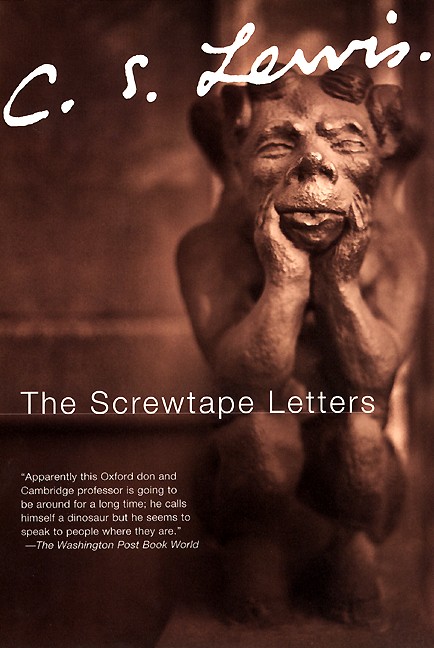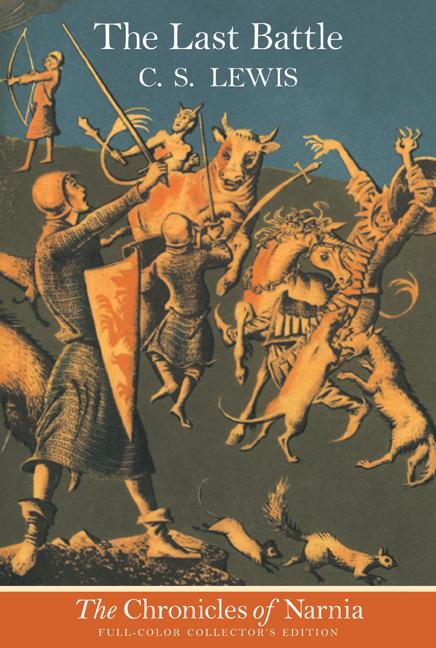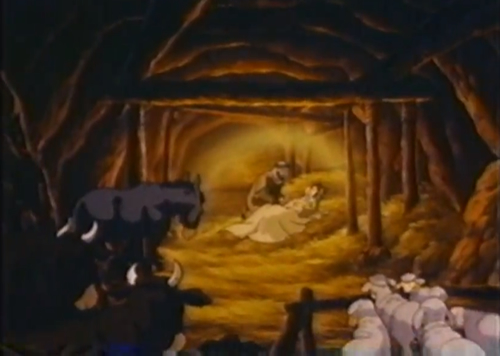The Wild Spirit (or Zombie Christianity)
Want to win prizes? Look for the secret word in this post and follow the Rafflecopter Giveaway instructions at the end.
(Random Sappy Christian Movie or Book Scene)
âGood afternoon, Timmy.â Mr. Heartsworth waved to Timmy from his garden, his face framed by the red roses he was planting in the dark, rich earth. âHow was school today?â He stood and ambled to the fence, his knees creaking with each step.
Timmy shook his head, his curly, blond hair bouncing as he did. âNot good. Anger got the best of me again, Mr. Heartsworth. Kicked a teacher in the shin and stole a candy bar from a friend. I wish I wasnât so bad! If I donât get a handle on myself, Iâll probably end up being a drug-dealer, atheist, and maybe a human trafficker. What is wrong with me, Mr. Heartsworth?â
The old man brushed off dirty hands and waved for Timmy to follow him into the garden. With one quick movement, he took his phone out of his pocket, opened Spotify, and turned on Bill and Gloria Gaitherâs “Just As I Am”.

âTimmy, sounds like a problem that only Jesus can fix.â
âJesus? Iâve heard of him before.â A cool, fresh wind began to blow, and Timmy took a deep breath. âEvery time someone says that name, I get a funny feeling in my chest.â
Mr. Heartsworth walked down the garden path, reaching out to pluck some blueberries off a bush. He handed them to Timmy. âThatâs because heâs calling to you to become a Christian. Heâll fix all your problems, Timmy. Just turn your life over to him, and your anger will melt away. Repeat after me: Heavenly Father, please save me from my sins and make me a Christian.â
Timmy fell to his knees and shouted the prayer at the top of his lungs. When finished, he jumped to his feet and ran into Mr. Heartsworthâs arms. âItâs gone! My anger is gone! I can be a good boy now!â
Mr. Heartsworthâs eyes brimmed with tears. âThatâs right, Timmy. Now youâre a Christian and the Devil canât stoke that old anger of yours. Now, letâs baptize you in the birdbath, and weâll be all done.â
âHooray!â Timmy did a little jig, then popped the blueberries into his mouth. âHmm! Even food tastes better now! I canât wait to tell all my friends about Jesus. And you know, I donât think Iâm going to be a drug dealer anymore. I want to be a preacher.â
âThat sounds mighty fine, Timmy. Mighty fine.â
* * *
Okay, so most mainstream Christian movies and books arenât quite this bad, but letâs face it, weâve all seen some that are so unrealistic that it makes you cringe. As speculative Christian writing has grown as a genre over the last ten years, things have gotten better in the writing area, but Christian movies and music have a way to come, I think. Iâm always curious as to why, though. What makes the most exciting and soul-shaking story in the universe become so sterile that it hardly bears a resemblance to reality? I could blame the three enemies: the world, the flesh, and Satan. But Iâll take those as a given and focus on a tool that all three use: man-centered religion.
Religion, absent the leading of the Holy Spirit, has a way of sucking the life out of anything it turns its hands to. It doesnât matter what religion it is, when humans are the driving force rather than God, there is always a loss of imagination and creativity. Why? Volumes could be written on the subject. Allow me to indulge in some oversimplification: we like to control things, keep them the same, and make them predictable. It helps us feel safe. The result? Zombie Christianity: a nightmarish, brain-eating, shell of a faith. Western Christianity has a profound struggle with this.
~ The secret word is âDanielâ ~
Whatâs the cure? A bit of oversimplification is due here as well. Anyone attempting to represent God through literature, art, or media should take a good, long look at his true nature. The Trinity, and everything about them, is wild. When characters in the Bible meet God or his angelic servants, itâs a harrowing, mind-blowing experience. Strange creatures, displays of awesome supernatural power, holy fear, glimpses into the future, mystery, talking animals, blessings, curses, foreknowledge. I could go on and on. There is nothing about Christianity or God that is boring or sterile, drab or clownish. Yes, God is accessible: we can cry, âAbba, Father.â But the reason that was so amazing to Paul was because he knew that God is a Consuming Fire. To give you the Nathan Paraphrase, Paul writes, âItâs awesome that we donât have to fear and worship God from a distance. He has literally adopted us even though he is a universe-creating, all-powerful, terrifying-but-loving Spirit of Fire and Life.â His words were not to take the awe away, but to give assurance.

I leave you with a passage from my new book, Daniel and the Triune Quest. I hope it shows the nature of God faithfully.
~Chapter 20: The Son~
If Daniel couldâve fallen to his knees, he would have. It was a man. But he was unlike any man heâd ever seenâŠ.Light emanated from his entire body, but it was more concentrated near the center of his forehead where he wore a diadem of white-hot stars. An intricate web of cracks began snaking through the rock faces of the chamber walls as the room strained to withstand his power.
With each step he took, Danielâs heart beat harder, as if more Life were being pumped into his body the closer the man came. He all but forgot the encompassing pressure of the three galaxies flitting around him.
Flowers, grass, and even small shrubs burst up through the rocks under the manâs bare feet, leaving a trail of footprint-sized meadows in his wake.
And his faceâDaniel couldnât tell what he looked like. Not exactly, anyway. In Peru, the Enemyâs appearance constantly shifted from angelic to demonic, and back again. This manâs face didnât change like that, but rather appeared to have the features of every loving person Daniel had ever met. There was Mr. Jonesâs steady gaze. And Gabrielaâthe gleam in her eyes and her cryptic smile. Inti, Granny, Chandra, Candiâit wasnât just their power or spirits that were similar to his. Somehow, each form theyâd ever taken seemed to come from him. Ms. Julieâs expression of kindness and pity was right there when his eyebrows moved. And Mrs. Jonesâs knowing glance. Even Raylinâs mannerisms were perfectly captured in the subtle movement of his arms and the calm sense of absolute confidence he exuded as he stopped and looked up at Daniel. How could he encompass so many characteristics all at once? But Daniel already knew the answer. It was because all things came from him. All Good Things.
Behind and around him spun a giant halo of colored light. It was so large that as it turned, part of it disappeared into the ground before rotating up again. To call it a rainbow wouldnât have done it justice. For one, it was infused with fire, electricity, water, earth, wood, and a myriad of other materials Daniel couldnât name. For another, instead of the usual spectrum, every hue, tone, and shade of color Daniel had ever seen in nature was there.
His hair was white. Not white like an old manâs, but white like the hottest fire Daniel could imagine. His eyesâhad they reminded him of Gabrielaâs? They were so much more: every personâs eyes, every animalâs eyesâthey were all there. His were The Eyes from which all eyes were made. What color were they? Red? Brown? The deepest green Daniel had ever seen? The yellow of a summer sunset, and the blue of an autumn sky? All the colors were so brilliant, pure, and clear that they caught and reflected each scintillating beam of starlight from Danielâs prison. He was staring into a crystal ocean refracting the light of a billion supernovas.
His raiment was power. Thatâs the only way Daniel could describe it. The very fabric of space around his body vibrated, radiated, and overheated. Atoms were split, the air was shattered, light was pulled in and happily stayed as close to his body as possible, draping him in a robe of glorious, mind-blasting energy that fell to the floor. Around his chest, he wore a sash of liquid gold. It undulated like a metallic river, flowing up and over his right shoulder, down and across his back, then around to his chest again.
Somewhere, music was playing. Daniel listened, enraptured by the sound. The melody was slow, rolling, and complicatedâso slow that he wondered if the song could reach its conclusion in a thousand years. Maybe it would go on forever. Every instrument he could imagine was somewhere in there, but perfectly blended with the others. His whole body resonated with the tuneâfirst happy and joyful, upbeat and fast and interwoven with faint forest sounds, and now slow and deep as it played alongside the wind and a chorus of voices sweet and yearning. It was ever changing, and ever beautiful.
The man lifted a finger and the galaxies holding Daniel flew into his ârobe.â Daniel was slowly lowered to the floor, where he promptly fell flat on his face.
 More about Nathan Lumbatis
More about Nathan Lumbatis
Website
If you are interested in purchasing a signed copy of Nathanâs books, or interested in finding out more about the Sons and Daughters series, please head over to his website at: www.nathanlumbatis.com

 On Amazon
On Amazon
Connect with Nathan on
Facebook: www.facebook.com/nathanlumbatis
Twitter: @NathanLumbatis
Instagram: nathan.lumbatis
About The Prizes
Combine the secret words found in each participating blog, combine them into a complete sentence, then follow the Rafflecopter link below to enter the sentence as your answer.Â
Enter the Giveaway!
_____
First prize: Signed copies of Daniel and the Sun Sword and Daniel and the Triune Quest
plus
Sons and Daughters Bookmarks
_____
Second Prize: Signed copy of Daniel and the Sun Sword + Bookmark
Enter the Giveaway!
_____
Blog Tour Schedule
Monday, December 18, 2017: www.nathanlumbatis.com
Tuesday, December 19, 2017: https://tpssarahlightshadows.wordpress.com/
Wednesday, December 20, 2017: http://dreams-dragons.blogspot.com/
Thursday, December 21, 2017: http://christianfictionreviewguru.blogspot.com/
Friday, December 22, 2017: http://speculativefaith.lorehaven.com
Saturday, December 23, 2017: https://thewritestuffradio.wordpress.com/


































 I also donât believe Lewisâs cautions about flippancy also rule out âdark humorâ or âgallows humor.â I myself have found that I enjoy many stories that employ satirical and even dark-humor moments, such as the superhero satire The Tick (newly remade for Amazon Prime).
I also donât believe Lewisâs cautions about flippancy also rule out âdark humorâ or âgallows humor.â I myself have found that I enjoy many stories that employ satirical and even dark-humor moments, such as the superhero satire The Tick (newly remade for Amazon Prime). In fact, if Lewis (or I) believed that itâs wrong to show a sense of humor about serious subjects altogether, we wouldnât enjoy Lewisâs satirical The Screwtape Letters itself. After all, Lewis himself dares to act as the âclever humanââwhom Screwtape dismissesâwho attempts to âmake a real Joke about virtueâ (and about demons) throughout all 41 letters.
In fact, if Lewis (or I) believed that itâs wrong to show a sense of humor about serious subjects altogether, we wouldnât enjoy Lewisâs satirical The Screwtape Letters itself. After all, Lewis himself dares to act as the âclever humanââwhom Screwtape dismissesâwho attempts to âmake a real Joke about virtueâ (and about demons) throughout all 41 letters. And in the final Narnia volume, The Last Battle, when the world of Narnia draws to its apocalypse, humor is the first blessing to leave. Only when our heroesâ fate is grim and absolutely serious can we feel the storyâs weight. Only then, once weâre drawn into the even better world of Narnia-within-Narnia, can we laugh and yet also embrace joyful solemnity:
And in the final Narnia volume, The Last Battle, when the world of Narnia draws to its apocalypse, humor is the first blessing to leave. Only when our heroesâ fate is grim and absolutely serious can we feel the storyâs weight. Only then, once weâre drawn into the even better world of Narnia-within-Narnia, can we laugh and yet also embrace joyful solemnity:

 movies themed to the season, all the Christmas specials â the greatest is Charles Dickensâ A Christmas Carol, a tour de force for the ages. The storyâs greatness is made up of many different parts â the immortal Scrooge, the chillingly evocative Marley, the color that breathes through every written line, the brilliant dialogue, witty and profound by turns. Not least among the sources of greatness is Dickensâ wholehearted embrace of joy and his endless delight in material pleasures. The Ghosts of Christmas taught Scrooge to keep Christmas with charity, which is a lesson to the stingy; they also taught him to keep it with joy, which is a lesson to the rest of us.
movies themed to the season, all the Christmas specials â the greatest is Charles Dickensâ A Christmas Carol, a tour de force for the ages. The storyâs greatness is made up of many different parts â the immortal Scrooge, the chillingly evocative Marley, the color that breathes through every written line, the brilliant dialogue, witty and profound by turns. Not least among the sources of greatness is Dickensâ wholehearted embrace of joy and his endless delight in material pleasures. The Ghosts of Christmas taught Scrooge to keep Christmas with charity, which is a lesson to the stingy; they also taught him to keep it with joy, which is a lesson to the rest of us.




 The converse is true. When C. S. Lewis told his Narnia stories, he showed in no murky manner what the gospel is all about. He was “healing on the Sabbath,” if you will. People who had not opened a Bible knew in their heart that there had to be a real person like Aslan and a real place like Narnia. To declare the Deeper Magic that Aslan displayed to somehow be off limits and to be avoided is nothing more than restricting the way we can share the truth about Jesus Christ.
The converse is true. When C. S. Lewis told his Narnia stories, he showed in no murky manner what the gospel is all about. He was “healing on the Sabbath,” if you will. People who had not opened a Bible knew in their heart that there had to be a real person like Aslan and a real place like Narnia. To declare the Deeper Magic that Aslan displayed to somehow be off limits and to be avoided is nothing more than restricting the way we can share the truth about Jesus Christ.


 less aligned with ours. A punk rocker is going to have Sid Vicious on his wall; the power player CEO will have a quote by Elon Musk (or maybe Gordon Gekko) on his computer background; the eager young activist will read books by Nelson Mandela or Malala. Everyone looks up to someone, and when we find those people, we want whatever content they produce.
less aligned with ours. A punk rocker is going to have Sid Vicious on his wall; the power player CEO will have a quote by Elon Musk (or maybe Gordon Gekko) on his computer background; the eager young activist will read books by Nelson Mandela or Malala. Everyone looks up to someone, and when we find those people, we want whatever content they produce.



 Myth may point to the past and explain how things came to be, socially or supernaturally. J. R. R. Tolkein’s Lord of the Ring purports to do just that. And by pointing to the history of Middle Earth, he opens up our thinking about the struggle, the conflict, the heroes, the small people tasked with big missions in the here and now.
Myth may point to the past and explain how things came to be, socially or supernaturally. J. R. R. Tolkein’s Lord of the Ring purports to do just that. And by pointing to the history of Middle Earth, he opens up our thinking about the struggle, the conflict, the heroes, the small people tasked with big missions in the here and now.
 Fantasy, though, the kind I want to re-read at Christmas, creates a vivid place that I want to live in. Lloyd Alexander made such a place in his Chronicles of Prydain. C. S. Lewis did when he took readers to
Fantasy, though, the kind I want to re-read at Christmas, creates a vivid place that I want to live in. Lloyd Alexander made such a place in his Chronicles of Prydain. C. S. Lewis did when he took readers to 
 As if that wasn’t enough, a group of shepherds crowded into their quarters to worship her baby. Angels, they said, had told them about this child—where he’d be born and how they could find him and how they would know him.
As if that wasn’t enough, a group of shepherds crowded into their quarters to worship her baby. Angels, they said, had told them about this child—where he’d be born and how they could find him and how they would know him. The Christmas story is both the proof that God can do the impossible and the declaration that the God who is Lord of the impossible accomplishes the miraculous.
The Christmas story is both the proof that God can do the impossible and the declaration that the God who is Lord of the impossible accomplishes the miraculous.


